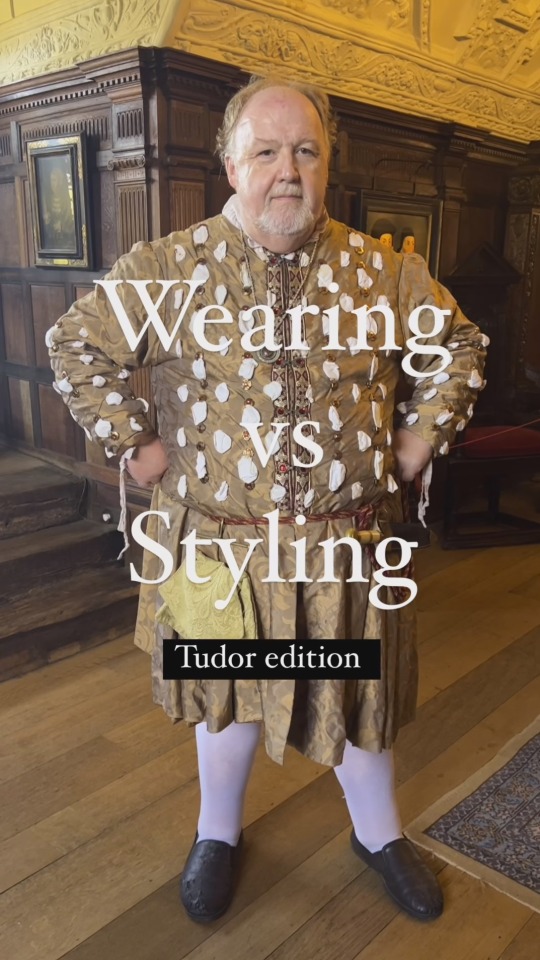All Time Ever Does Is Pass And All I Ever Do Is Remember.













all time ever does is pass and all i ever do is remember.
sue zhao / sexual devotion, nickie zimov / @ seashellronan / nomad, clairo / annihilation, jeff vandermeer / edward scissorhands (1990) / sky vance / dictionary of obscure sorrows / jonny, faye webster / the madman, kahlil gibran / may (2002) / the lonely city, olivia laing / punch and judy, elliott smith
More Posts from Fitzcrozier and Others






House of the Dragon (2022 - ) // Dune (2021)
Why did I just notice that???
Do you see how Alicent is so dissatisfied in the scenes during the Green Council meeting in episode 9? How utterly surprised and somewhat disappointed?




It's not because she falls from cloud nine to discover the possibility of Aegon becoming king when she learns about the lords' "long-laid plans" from Tyland Lannister. She knew that it would make sense for Aegon to inherit the throne for both the realm and the survival of her family, and basically gave us hints she realized this as early as the hunt scene in episode 3.


More specifically, she understands that she might have to put Aegon on the throne during the scene when a heavily drunk Viserys laments his fears of making a mistake in naming Rhaenyra his heir since he now has a son, and reveals to Alicent his prophetic vision of seeing his son with the conqueror's crown. Even if at that moment, Alicent reassures Viserys he made the right choice, you can see that the doubt lingers in her mind, and in seeing Rhaenyra return from the hunt covered in blood in absolute and ruthless callousness, Alicent recognizes the danger.


It is a wake-up call: in the end, she might have to choose her son over Rhaenyra.
And of course, we know that as Aegon was growing up, Alicent spent hours musing these doubts and even confronts him with them in episode 6: "You are the challenge, simply by living and breathing. You are the king's firstborn son and what they know, what everyone in the realm knows in their blood and in their bones, is that one day you will be our king."


So what explains her dismay during the Green Council meeting??
As I see it, the cause of Alicent's distress during the Green Council among other things is not that the lords planned a whole operation to crown Aegon as king, but that they did so behind her back, as if she is not fit to be included in these discussions, let alone be consulted for her own son's future and survival.


She rightly says: "Am I to understand that members of the small council have been planning secretly, to install my son without me?" and right after that comes the condescending reply: "My queen, there was no need to sully you with darkling schemes."
No sh!t.
Remember how betrayed and distraught Alicent felt went Aemond lost an eye and everyone dismissed her concerns as that of an overreacting and overbearing mother? The Green Council scene gives flashbacks to this.


Once again, Alicent's wishes, her wills, her thoughts, and her whole person as a mother, queen, advisor, and woman, are sidelined and minimized by members of her own council.
So this is why I think it makes sense that episode 9 is called "The Green Council" which contrasts the name given to a different council meeting in episode 10, namely, "The Black Queen." Because apparently, Rhaenyra owns her council meeting, even if she has to shut down Daemon to do so. But Alicent is not yet perceived as her own council's queen.
I hope we can somehow see Alicent truly become her own Green Queen in season 2.



mary oliver, ‘from this river, when i was a child, i used to drink’
[ID: “‘What, precisely, will you grieve for?’ For the river. For myself, my lost joyfulness. For the children who will not know what a river can be—a friend, a companion, a hint of heaven.” end ID]




Easter postcards by Russian-Ukrainian artist Vladimir Kadulin
i've come to realize there are only two kinds of tragedies: preventable and inevitable. preventable tragedies are the kind where everything could have maybe worked out if only. if only romeo had gotten the second letter. if only juliet had woken up earlier. if only creon had changed his mind about antigone sooner. if only orpheus hadn't turned around.
inevitable tragedies are the kind where everything was always going to end terribly. of course macbeth gets deposed, he murdered his way to the throne. of course oedipus goes mad, he married his own mother. of course achilles dies in the war, he had to fulfill the prophecy in order to avenge his lover.
both kinds have their merits. the first is more emotionally impactful, letting the audience cling to hope until the very end, when it's snatched away all at once leaving nothing but a void. the second is more thematically resonant, tracking an inherent fatal flaw in its hero to a natural and understandable conclusion, making it abundantly clear why everything has to happen the way it does.






SAINT LAURENT Spring/Summer RTW 2025 if you want to support this blog consider donating to: ko-fi.com/fashionrunways
“kill them with kindness” Wrong. CURSE OF RA 𓀀 𓀁 𓀂 𓀃 𓀄 𓀅 𓀆 𓀇 𓀈 𓀉 𓀊 𓀋 𓀌 𓀍 𓀎 𓀏 𓀐 𓀑 𓀒 𓀓 𓀔 𓀕 𓀖 𓀗 𓀘 𓀙 𓀚 𓀛 𓀜 𓀝 𓀞 𓀟 𓀠 𓀡 𓀢 𓀣 𓀤 𓀥 𓀦 𓀧 𓀨 𓀩 𓀪 𓀫 𓀬 𓀭 𓀮 𓀯 𓀰 𓀱 𓀲 𓀳 𓀴 𓀵 𓀶 𓀷 𓀸 𓀹 𓀺 𓀻 𓀼 𓀽 𓀾 𓀿 𓁀 𓁁 𓁂 𓁃 𓁄 𓁅 𓁆 𓁇 𓁈 𓁉 𓁊 𓁋 𓁌 𓁍 𓁎 𓁏 𓁐 𓁑 𓀄 𓀅 𓀆

The Brontë Sisters (Anne Brontë; Emily Brontë; Charlotte Brontë) by Patrick Branwell Brontë oil on canvas, circa 1834 NPG 1725
© National Portrait Gallery, London
-
 aurea-corde liked this · 2 weeks ago
aurea-corde liked this · 2 weeks ago -
 adrienthinks liked this · 2 weeks ago
adrienthinks liked this · 2 weeks ago -
 guesswhojusttt liked this · 3 weeks ago
guesswhojusttt liked this · 3 weeks ago -
 thesickestqrmydcll liked this · 3 weeks ago
thesickestqrmydcll liked this · 3 weeks ago -
 agentsmiths reblogged this · 3 weeks ago
agentsmiths reblogged this · 3 weeks ago -
 tender-ghostgirl liked this · 3 weeks ago
tender-ghostgirl liked this · 3 weeks ago -
 aboxoftangerines liked this · 3 weeks ago
aboxoftangerines liked this · 3 weeks ago -
 pinacoladafume reblogged this · 3 weeks ago
pinacoladafume reblogged this · 3 weeks ago -
 mangosteens-come-from-trees liked this · 4 weeks ago
mangosteens-come-from-trees liked this · 4 weeks ago -
 jesterspoet liked this · 4 weeks ago
jesterspoet liked this · 4 weeks ago -
 sekaisstuff reblogged this · 1 month ago
sekaisstuff reblogged this · 1 month ago -
 sekaisstuff liked this · 1 month ago
sekaisstuff liked this · 1 month ago -
 bowieissosocool liked this · 1 month ago
bowieissosocool liked this · 1 month ago -
 grapecaseschoices liked this · 1 month ago
grapecaseschoices liked this · 1 month ago -
 webweavecollection reblogged this · 1 month ago
webweavecollection reblogged this · 1 month ago -
 acrowdedstreetin1944 liked this · 1 month ago
acrowdedstreetin1944 liked this · 1 month ago -
 allaboutj reblogged this · 1 month ago
allaboutj reblogged this · 1 month ago -
 klandestschwan reblogged this · 1 month ago
klandestschwan reblogged this · 1 month ago -
 despressothings liked this · 2 months ago
despressothings liked this · 2 months ago -
 annesidora-mint liked this · 2 months ago
annesidora-mint liked this · 2 months ago -
 zaqypatt liked this · 2 months ago
zaqypatt liked this · 2 months ago -
 butyouweregone liked this · 2 months ago
butyouweregone liked this · 2 months ago -
 seventeen-tracks liked this · 2 months ago
seventeen-tracks liked this · 2 months ago -
 traumatizedbaaaby reblogged this · 2 months ago
traumatizedbaaaby reblogged this · 2 months ago -
 nathcnhe reblogged this · 2 months ago
nathcnhe reblogged this · 2 months ago -
 hedagallagher liked this · 2 months ago
hedagallagher liked this · 2 months ago -
 thedorksite liked this · 3 months ago
thedorksite liked this · 3 months ago -
 coppertwilight liked this · 3 months ago
coppertwilight liked this · 3 months ago -
 mykingdomforablog liked this · 3 months ago
mykingdomforablog liked this · 3 months ago -
 genesisofpulsewidth liked this · 3 months ago
genesisofpulsewidth liked this · 3 months ago -
 kendalisboring reblogged this · 3 months ago
kendalisboring reblogged this · 3 months ago -
 kendalisboring liked this · 3 months ago
kendalisboring liked this · 3 months ago -
 echofluffy liked this · 3 months ago
echofluffy liked this · 3 months ago -
 southernbutchblues liked this · 3 months ago
southernbutchblues liked this · 3 months ago -
 lotsofhobi reblogged this · 3 months ago
lotsofhobi reblogged this · 3 months ago -
 lotsofhobi liked this · 3 months ago
lotsofhobi liked this · 3 months ago -
 heyimbird reblogged this · 3 months ago
heyimbird reblogged this · 3 months ago -
 heyimbird liked this · 3 months ago
heyimbird liked this · 3 months ago -
 pinkrebelsuitchaos reblogged this · 3 months ago
pinkrebelsuitchaos reblogged this · 3 months ago -
 fromgotham reblogged this · 3 months ago
fromgotham reblogged this · 3 months ago -
 likesicantmake reblogged this · 3 months ago
likesicantmake reblogged this · 3 months ago -
 a-bit-of-space liked this · 3 months ago
a-bit-of-space liked this · 3 months ago -
 hypomanic-chaos liked this · 3 months ago
hypomanic-chaos liked this · 3 months ago -
 lizzyluke reblogged this · 3 months ago
lizzyluke reblogged this · 3 months ago -
 punkisdead reblogged this · 3 months ago
punkisdead reblogged this · 3 months ago -
 antipocalypse reblogged this · 3 months ago
antipocalypse reblogged this · 3 months ago -
 st4rgirlmar1e liked this · 3 months ago
st4rgirlmar1e liked this · 3 months ago


